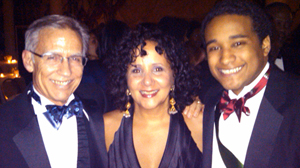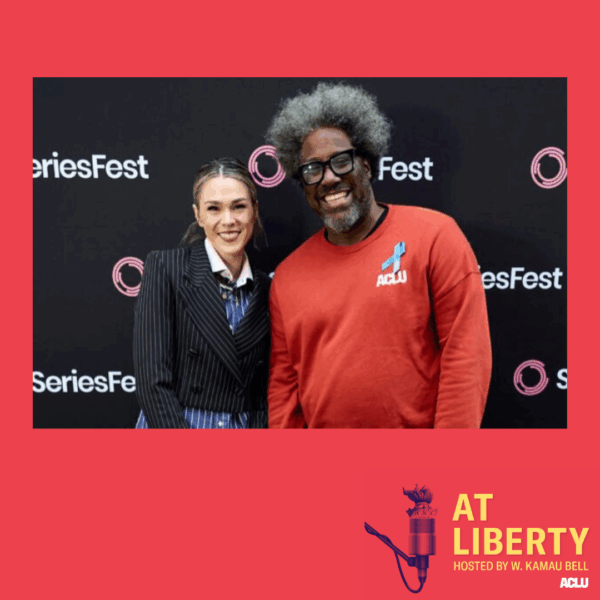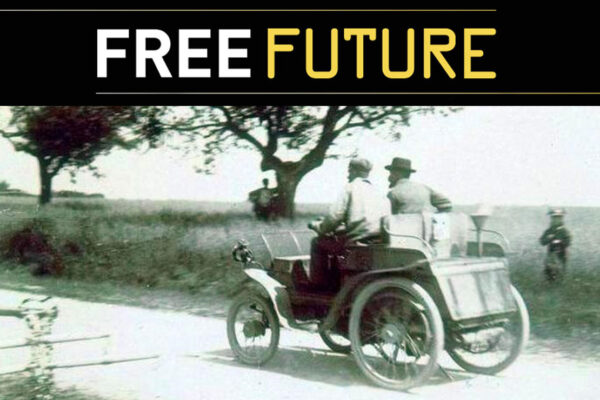A Mother’s Story: It Is Not What We Say to Black Boys and Men, It Is What We Do to Them


Over the past month, I’ve listened to the public conversation unfolding around Trayvon Martin’s death. Across the nation – from race relations experts at the best universities to average Americans at the dinner table – everyone is debating: What role did race play in the 17-year-old’s shooting and the police’s subsequent actions?
It seems that answer depends on in whose shoes you are standing. Recently, a USA Today/Gallup Poll showed a racial divide between Blacks and whites in how they view the shooting of this young Black man, dressed in a hoodie, who dared to walk at night through his upper-income housing development in Sanford, Florida. According to the poll, majority of white Americans feel that race made no difference in the case.

Laura Murphy (center) with her husband and son.
From where I’m standing, that’s naïve and wishful thinking. In my profession, I’ve seen first-hand how much work we still have ahead to achieve racial justice in our country. In fact, on April 17, Sen. Dick Durbin (D-Ill.) held a Senate Judiciary Committee hearing on racial profiling in America in an effort to explore what can be done to combat the use of racial stereotyping in law enforcement.
But for me, this conversation about Trayvon and racial profiling extends beyond an academic and political discussion. It’s real, everyday life for a mother of a young Black man. Long before Trayvon was killed, I felt a special sensitivity to how society treats people who look like my 22-year-old, caramel-skin son. That’s why I could not raise my son to be colorblind. To do so would put his life in peril.
When my son was just 9 years old, the ACLU issued a report, Driving While Black: Racial Profiling On Our Nation’s Highways. The report chronicled the harassment Black motorists and pedestrians face on our streets and highways and was filled with gut-wrenching stories of police stops gone awry involving Black drivers and white police officers. I could no longer ignore that one day, this could happen to my son. When the time came, unlike the parents of his white classmates, I consciously delayed his getting a driver’s license. I stalled and dissembled because I was fearful. Instead of getting his license at 16, he got it at 18.
Knowing what I know, I’ve done my best to protect my son by teaching him to anticipate prejudice and understand that for some, his skin color is an invitation to scorn and mistreatment. As a precaution, he’s learned to modulate his voice and swagger so he does not come across as threatening. He also speaks three languages: cultured English (making it clear he is educated), conversational Spanish and the language of his hip-hop generation.
Still, he has faced harassment. He has been stopped by the police while driving in a predominantly white, upper-middle class neighborhood. He has been followed around by security personnel in local, upscale stores like Bloomingdale’s and Neiman Marcus. And he’s been treated like a potential criminal by a neighbor who recently ran inside and locked his door when my son smiled and waved while walking down the street wearing a hoodie.
He’s grown accustomed to this. Now, when he comes home from college, he says he has trouble trusting some of his most well-intentioned neighbors when he is standing in a group of young Black men on his street. I understand why. James Baldwin, the late famous Black novelist, essayist and public intellectual, pegged it when he wrote: “I can’t believe what you say, because I see what you do.” Oftentimes, what his neighbors do is cross the street when they see him coming.
In response, I have done all I can to make it easier for him. Six years ago, when he was home on summer break from boarding school, I sent an email to the neighbors who may not know: “Don’t be alarmed if you see a Black kid walking around; he’s my son and he lives here.”
For all the women who stand in my shoes, it’s hard to believe that race didn’t play a role in Trayvon’s death. I feel deeply for Travyon’s mother; she’s living my worst fear.
I also feel that this is not just a Black and white issue. These are the same concerns for Latino mothers in Arizona, Alabama and any place there are ill-conceived immigration policies enforced. I sympathize with any parent who is Arab, Muslim or South Asian who anxiously waits at the airport, wondering what harassment their children may face because of the name on their tickets or how they are dressed.
We cannot be satisfied with legal equality when for many of us, it is of limited value in the face of our actual day-to-day experience. Unless Americans work together to end the practice of racial profiling – not just in law enforcement but in the larger social fabric – the precautions I and many other parents of color take may never be enough.
Another Parent’s View
By William Psillas
I write from a different perspective. As Laura’s husband, I am the stepfather of this same young Black man. In contrast to Laura’s history, I am an ordinary white male. So the concerns I have – and the questions they raise, in our own family unit, in this young Black man’s life, and, as a microcosm, in the American experience at large –are different.
When I hear his mother’s messages to him that he must be sensitive to his skin color, no matter how beautiful it is, with admonishments that not doing so is a danger, it is arresting. Likewise, when I hear the conversations he and his young Black friends have about their place in America, I not only hear the specific dangers to which she refers, I hear other dangers that are stifling, diminishing and flat-out obstacles to the kind of life any of us would want for our children. It comes through loud and clear that racism continues to be a strong force in America. And, I think, when you get right down to it, this continues to be true because the hearts and souls on all sides of the equation, no matter how well intentioned, are not there yet.
I wish every caring white American could be sensitized to the pain, suffering and diminishment that is embodied in the minority mindset. This is not a Black issue, an Asian, Hispanic, a Jewish or Muslim issue – it’s everyone’s issue. I wish every caring white American could see that laws and rights and diversity initiatives, while helpful, will not resolve the issue by itself. It also requires genuinely extending your heart and soul, compassionately and over a sustained period, because there is much residue and much distrust to overcome.
I wish every caring Black person (this could well be true of other minority populations but I live in a Black family and hear their conversations first-hand) could also understand his or her role in perpetuating prejudice. I think, for example, Black people give white people far too much credit for being intentionally discriminating when I think much of what fires Blacks up about whites results from our insensitivity, ignorance or oblivion. We simply can’t see life through another’s eyes and, to put it bluntly, we’re mostly concerned with ourselves. Those who don’t face racial discrimination just don’t think nearly as much about Black/white issues.
Frankly, I think we’d forward the ball if we all just owned up to the fact that there is prejudice in each of us. That may open the door to a different and more generous conversation toward a resolution. It would be more effective than simply debating whether there is prejudice, who owns it, and who’s accountable for fixing it. Whether prejudice exists as an active element of our social fabric is a foolish question. It’s in and around us every day - just look and listen.
Take action. Urge your member of Congress to pass the End Racial Profiling Act, legislation sponsored by Sen. Ben Cardin (D-Md.) and Rep. John Conyers (D-Mich.), which would, among other things, provide training to help police avoid responses based on stereotypes and unreliable assumptions about minorities.
This is the final post in the series "I Am Not a Stereotype: End Racial Profiling Now," on ACLU's Blog of Rights.
Learn more about racial profiling: Sign up for breaking news alerts, follow us on Twitter, and like us on Facebook.
Stay informed
Sign up to be the first to hear about how to take action.
By completing this form, I agree to receive occasional emails per the terms of the ACLU's privacy statement.
By completing this form, I agree to receive occasional emails per the terms of the ACLU's privacy statement.



